'The Last Black Man In San Francisco' filmmakers would pass up a '$30m cheque' to stick with indie films
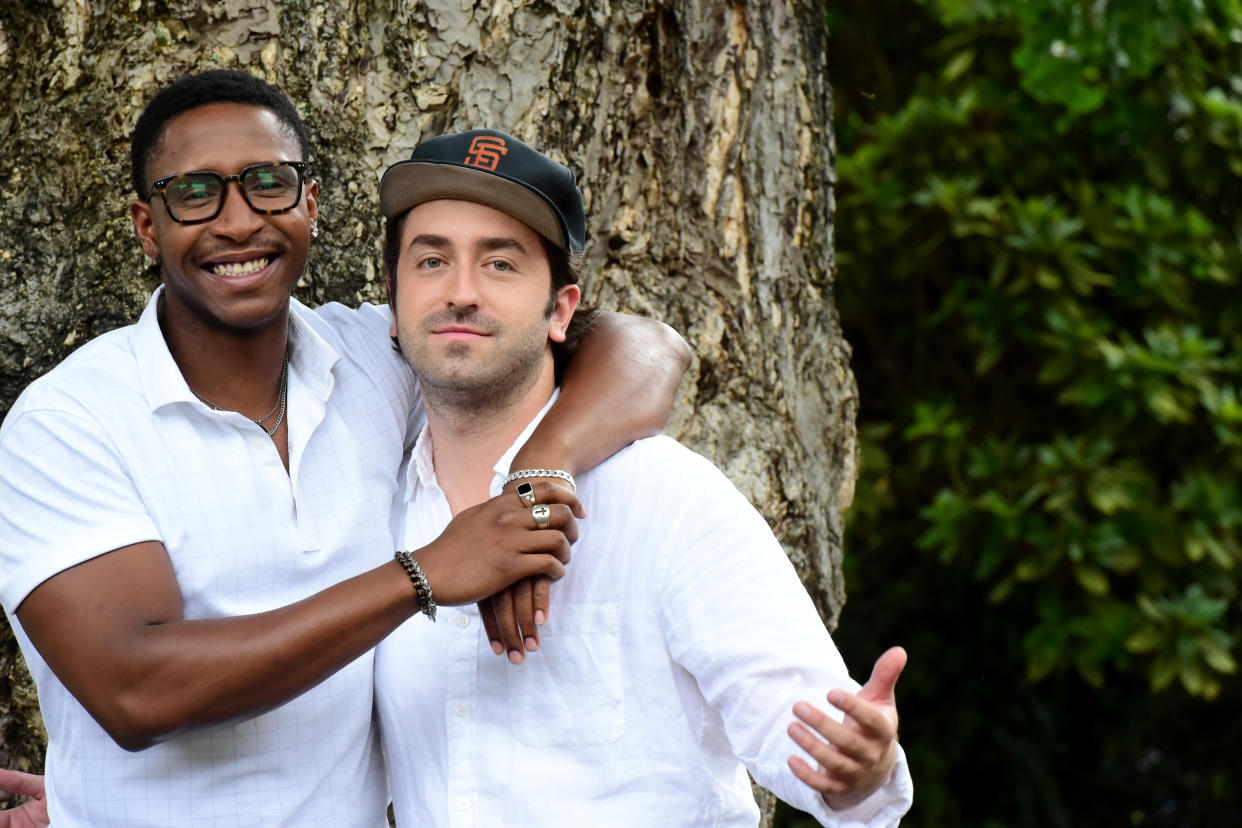
The Last Black Man In San Francisco has been earning critical acclaim ever since it premiered at the Sundance Film Festival in January.
The directorial debut of Joe Talbot, co-written by and starring his childhood friend Jimmie Fails and partly inspired by the latter’s own life, tells the story of a young man trying to reclaim the house his grandfather built in the heart of San Francisco.
The soulful indie drama launched the two friends as filmmakers to watch, earning them the Best Directing and a Special Jury Prize for Creative Collaboration at Sundance, but neither are in a hurry to switch low-budget for big-budget movies.
“I've been getting sent big Hollywood stuff but I didn't really want to be part of it necessarily,” Fails told Yahoo Movies during BFI London Film Festival. “So I think it's about building my career and me as a person, what I want to be putting out there to the world, as opposed to letting someone push me, you know what I mean?
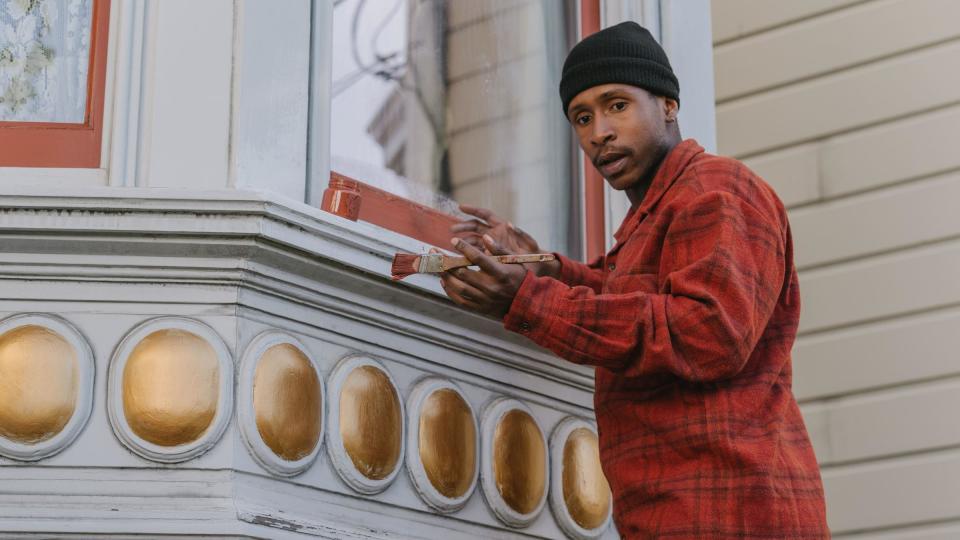
“If I have to pass up a f**king $30 million cheque to be in a f**king stupid-ass movie, to be a part of something that I feel will be remembered and is how I want to be remembered, I'll do that.”
Talbot agrees and believes that it’s important that cinema has a diversity of offerings that maybe doesn’t cater to every single viewer.
“You want to make something that people see, especially in this time where people aren't watching films as much, but its important it be something that matters.” he explained.
"I think the industry is freaking out and trying to figure out what to do, but I think it can be dangerous when all films are for all people. In chasing the masses, you can lose the specificity of voice, and the risk waxing off the rough edges and imperfections that give a film its humanity.”
Read the full interview with Joe Talbot and Jimmie Fails on making their movie, existing in Hollywood and what they think of comic book movies dominating that release schedule.
Yahoo Movies UK: I love the use of Joni Mitchell’s “Blue” in the movie, was it easy getting permission to use her song?
Joe Talbot: It was incredibly hard, no, really hard. It came to be actually because of this rapper Mac Dre, he's sort of a Bay Area legend. He sampled “Blue” so a lot of people grew up on this hip hop song in the Bay Area. And that was sort of my gateway drug into discovering the original. But yeah, I mean, God, it's a beautiful song. Emile Mosseri (our composer) and I talked a lot about the music from that period in San Francisco in the 60s, like Jefferson Airplane and Grateful Dead. Joni Mitchell's not part of that wave but it does conjure similar feelings of what that time was like in our imagination because obviously, we didn't live through it. But I think the 60s in San Francisco really means something very specific when you grew up there.
You guys are best friends, tell me about how you met?
Jimmie Fails: We grew up together in the same neighbourhood. You know, there's a melting pot, you know, Precita Park is like the park that kind of brought all the kids together back when kids were still playing outside without their parents, which is something I don't really see anymore. There’s hella adults now, there are more adults than kids and we’d be doing a bunch of bad stuff because there were just no adults around. And we'd always kind of see each other, we had some of the same friends who were a little bit older but then we ended up meeting soon after and it was like we're meant to be friends.
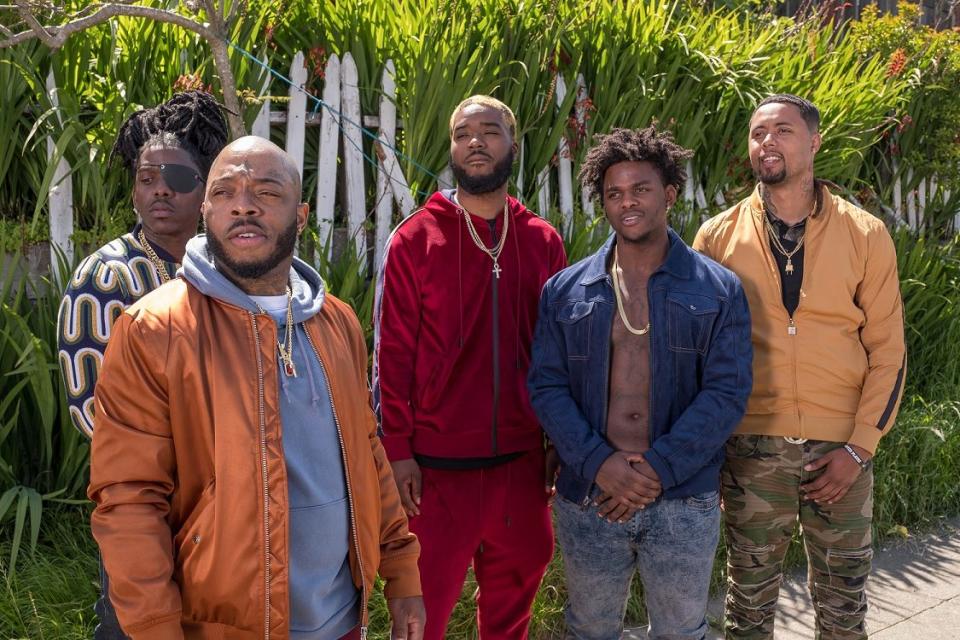
From then on our relationship was kind of built on being vulnerable and open with each other. Sharing art and music and in all these things, and stories, and about the history of San Francisco history, just life in general. Out of that came making movies together. Joe's always had a camera in his hand and he's very responsible for pulling some of the creative energy out of myself, some of the better creative energy that I've had. We kind of enabled each other in a positive way.
Read more: How masculinity is being addressed on-screen in 2019
JT: Which is rare where we grew up because not a lot of guys felt like they could be comfortable being vulnerable with each other.
The conversation around masculinity has expanded in the last few years in cinema, especially this year too. How do you see the concept of masculinity evolving?
JT: Joe Talbot of Idles, the cooler JT among us, is doing something similar in his music and within punk, which is historically not a place to be vulnerable as a man. I think guys everywhere are grappling with how to be men in the time we live in now. I hope that that leads to more introspection, and to think about some of the really shitty things that we grew up thinking that being a man is about which it isn't. I think, for Jimmie and I, we always felt the most comfortable when we were around people that we could be vulnerable and open with and sensitive with. Even in a liberal place like San Francisco, “vulnerable” was almost like a dirty word growing up."
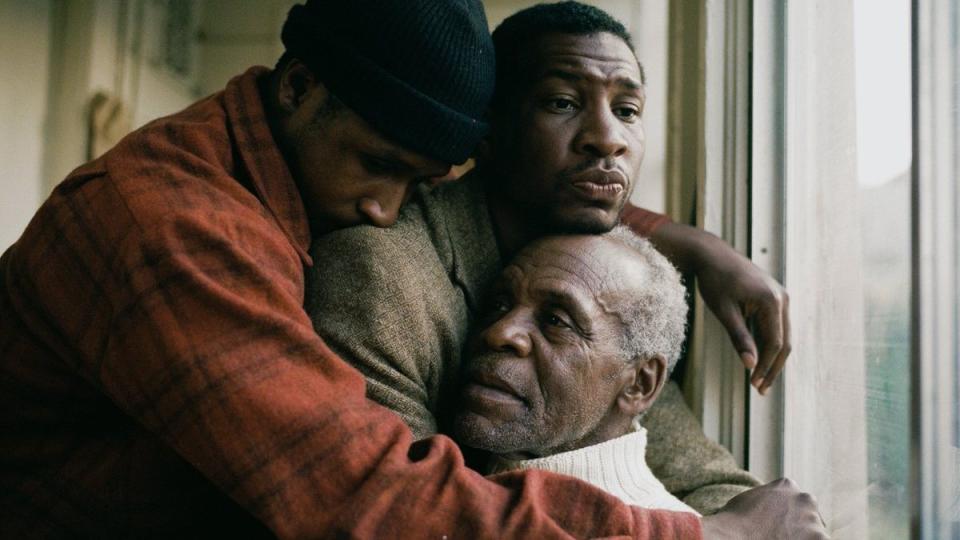
It was a source of embarrassment as was sharing things with each other because we knew other guy friends would make fun of us for it. And I hope that that's changing. It can't change fast enough. But I think that it's important because talking about your emotions, is the beginning of a much longer process of changing and growing, but it kind of has to start there.
Jimmie, the film is based on your life and you play a version of yourself. Was that a cathartic experience?
JF: Yeah it was. Acting I think, is very cathartic in general because of the range of emotions you have to bring yourself to and stuff so you can get out. It helped me move past a lot of things that were kind of just sitting back there, that I just kind of looked over and never dealt with and tried to forget about I suppose. So yeah, I'd say it definitely was, I definitely felt I came out a bit more mature and in a much better place emotionally.
The film has earned some serious acclaim since it premiered in Sundance. How has the experience been dealing with the world of Hollywood since and what you expect to come next?
JF: I always say it's a privilege to be able to do what we do. I’m picky in terms of what I like to do and how I like to represent myself in my art as an actor. I just landed a part that I really wanted after passing up some stuff, and doing some stuff and not getting the part, that stuff that I didn't really care too much for. So for me to be able to work with somebody that's a really good guy and be a part of something that I really can get behind them that I care about, that's what I'm concerned about. It's not about the Hollywood aspect, because this is another indie film too.
Read more: Four actors turned directors at London Film Festival
I've been getting sent big Hollywood stuff but I didn't really want to be part of it necessarily. So I think it's about building my career and me as a person, what I want to be putting out there to the world, as opposed to letting someone push me, you know what I mean? If I have to pass up a f**king $30 million cheque to be in a f**king stupid-ass movie, to be a part of something that I feel will be remembered and is how I want to be remembered, I'll do that.
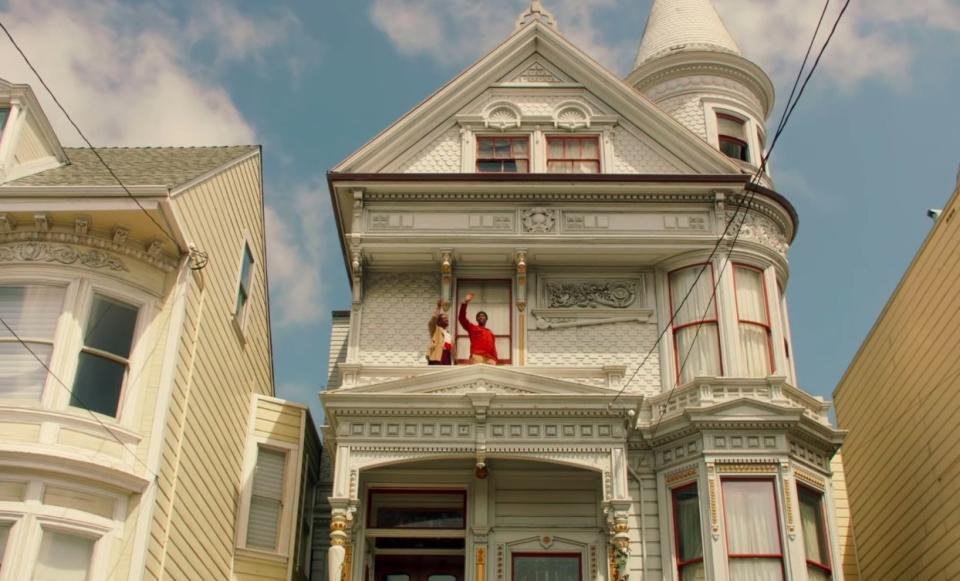
JT: I agree with a lot of that. I think it's about who you surround yourself with because, for us, we’ve been working on this movie up in San Francisco, relatively in isolation, away from the grasp of Hollywood, and we had pretty much free rein to make what we wanted to make. That's one of the privileges you have as a first-time filmmaker. Yes, you're working tirelessly to justify this incredible opportunity you've been given, hoping to make something that someone will want to watch. But that youth is often accompanied by smaller budgets which, in turn, can allow you more creative freedom. With bigger films deeper in your career, There's not a lot of money on the line. And of course, as you get more money for your films, they can expand in vision, but there are pricier pressures. That’s something for me I think about a lot as a director. I don't necessarily want to jump from this small movie, which was a little over a million and much less than $5 million to make, we'll just say, to a $30 million movie, unless there's something that really makes sense there. It's about the incremental growth and keeping as much of that team intact.
I think when you jump to something so much more expensive, they often try to pull apart the very fabric of what made your first effort so special, which in my case, is the people that were around me. I had so much support. And I had so many smart people that at every turn, were improving the final film that we made. Maybe if I was a lot smarter, I wouldn't need those people but I'm kind of dumb, so I need all these good people around me that really are my most trusted confidant and creators.
Recently Martin Scorsese has spoken about what cinema is and he’s suggested that Marvel movies are “not cinema”. Do you think comic book movies can deliver the same emotional wallop as films like yours?
JF: I'm not into that shit so I just don’t care. Sorry, I just don’t care!
JT: I think some people can do it. Chris Nolan and The Dark Knight, for example. I remember watching that and thinking, wow, how did they ever let this movie exist at the studios because you can feel the human hand of an auteur. We all grew up loving certain big-budget movies like that. When they turn out great, it can seem miraculous, because with so much money on the line, studios can be risk-averse. But looking deeper into how the sauce got made on those rare studio gems can be revealing. Often times, they're backing a vetted winning horse deep into their career who's had critical and commercial success. That gives studios a little more openness to take a big risk. Other times, the creatives were pirates who snuck their way in, stole the money, made a crazy movie, and through a million rounds of notes, the film retained its character and made it out alive.
More often, though, are the stories of failed pirates who tried to do the same thing and the movie never got seen. I feel like this happens even with independent films that didn't have huge budgets stacked against them. So I think that, generally, it is hard to make something that human because the forces are against it. There's too much money, too much risk involved, to do something that feels weird or risky. Our movie, made for much less money, can go off in strange directions, with side characters. It can have Joni Mitchell playing over a group of men fighting. And I think that's why Plan B and A24 are really great and are brave because they're bigger names within this industry that actually allow films to be weird.
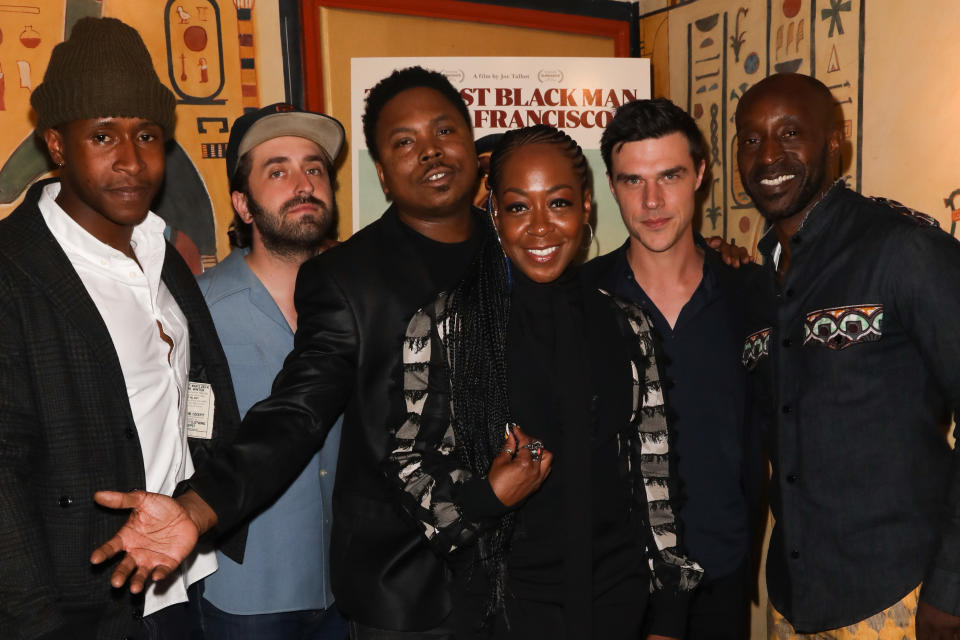
JF: When you're making a film, the process is everything. And then once it's finished, then it's all just, you know, this sort of stuff, right? You want to improve every time but you do still want to keep your imagination and your weirdness, you want to be able to still be funny and weird. I essentially get to play charades, I literally get to just be weird as fuck sometimes that's the thing I'm most excited about. Like the next thing, I just get to be a f**king weirdo.
JT: Adding to that, not all flaws are bad. There are flaws in our movie, there are things that are a little funky and rough around the edges. And I think sometimes all of our inclinations match executives at huge studios, but even as artists, is to try to massage those and clean them up so that the film is this perfect thing. I actually think in some strange way, we connect to imperfections. That's why so many directors’ first and second films are some of their best work. Do The Right Thing, Spike Lee’s second film is a f**king masterpiece. There are some rough elements in some places but it just has so much truth.
It’s certainly interesting when you think about how certain indie filmmakers have seen their work suffer the bigger budget that they are given.
JT: I think you chase that for reasons, personal reasons and industry-driven reasons. You want to make something that people see, especially in this time where people aren't watching things as much. I think the industry is freaking out and trying to figure out what to do, but I think it can be dangerous when all films are for all people. You can lose the edge and the imperfections that make it unique.
The Last Black Man In San Francisco will be in cinemas from 25 October 25.

 Yahoo Movies
Yahoo Movies 
